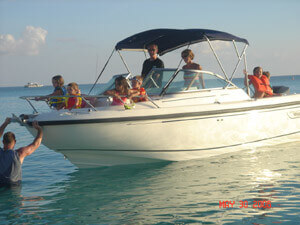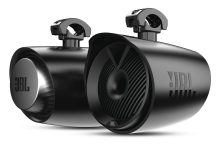As the summer season approaches, people tend to get involved in more outdoor activities. One activity is water sports. And as with any sport, participants need to be aware of boating safety tips guidelines in order to enjoy being in or out on the water, minimizing the potential for accidents. Most accidents can be avoided by keeping boating safety in mind.
According to a 2005 report from the Centers of Disease Control and Prevention (CDC), there were 4,292 deaths that were reportedly caused by water sports accidents. Most any accident or tragedy can be avoided if we put an emphasis on safety during any kind of water sports. Whether you are swimming, fishing, surfing, boating, tubing, or skiing, water safety measures should be taken.
Some useful tips regarding safety precautions during water sports are listed below:
1. KNOW HOW TO SWIM
If you know how to swim, you will naturally feel more comfortable with any kind of water sport. Swimming lessons can be equally beneficial for both children and adults. It is even better for adults to have advanced swimming skills, so they are prepared to assist children and anyone else who may experience difficulty in the water.
2. USE A LIFE JACKET / PERSONAL FLOTATION DEVICE (PFD)
According to 2006 statistics, approximately 90% of individuals who died in a boating accident were not wearing life jackets or any other type of flotation device. Even if you know how to swim, there may be circumstances when you are not able to swim back to the boat, or shore. A life jacket helps you float on the surface of the water with little effort. Being on the surface will help you to be clearly seen by rescue teams or those coming to assist you.
Life Jackets On The Boat

When wearing a life jacket, make sure that it fits you well. If it is too small, it may not be properly fastened and secured, and may come loose; If it is too large, you could just come right out of it during a hard fall. Find a life vest that is the perfect fit!
3. ALWAYS TAKE SOMEONE WITH YOU
It is risky to be out in the water alone. It’s not unusual for people to go out by themselves to fish, or be out on their boat by themselves. Your friends or family should always be aware of where you are going, how long you plan to be gone, and how to reach you in case of an emergency.
Yet it is always better to take someone with you, just in case something happens. Plus you’ll have the benefit of being with a friend or family member, who can collaborate on the fun things that happen while out on the water, like how “big” that fish really was that you threw back in, or that got away!
4. BE PREPARED
Depending on the type of vehicle used in water activities, always be fully prepared before going out on the water, or participating in any water sports. The equipment or safety accessories can include life jackets/vests or other flotation devices, boat radio, mobile phone, fire extinguisher, first aid kit, horn or whistle, and anything else that will help to keep participants safe.
Some water activities can require wearing a life jacket or other flotation device while participating in the sport. For example, when water skiing, the skier should wear a ski belt or ski vest, and properly adjust the footings to a comfortable position. If tubing, such as on a Sportsstuff tow behind tube, each rider should be wearing a life vest, and depending on the design of the towable tube, goggles or water masks, and water helmet.
5. STORAGE & PROPER USAGE OF WATER TOYS AND SAFETY ITEMS
It’s important to keep items on a boat secured and safely stored. It’s also important that everyone, or at least every adult, on board be able to know how to use the safety equipment that you are taking with you. Good basic instructions should be enough to properly prepare everyone for usage.
Be sure to store all of your recreational and water toys safely between usage. Water toys like wakeboards, skis, towable tubes, should be secured when not in use to prevent any injury while the boat is moving.
6. PLAN IN ADVANCE
One motto in scuba diving is “Plan your dive, and dive your plan.” The same applies to participating in water sports. Plan and prepare for everything before going out on the water for any kind of water sports. Make sure that everyone participating is equally informed or involved in the process, so if anyone has concerns or problems, they can be dealt with in advance. No person should attempt any kind of water sport activity if he or she is not fully prepared for it.
7. KEEP AN EYE ON CHILDREN
Boating safety means children should not be left on their own during any kind of water sport. Unfortunately, according to statistics, drowning is the second leading cause of death for children in the age bracket of 1 to 14. Children are not able to judge the danger of being in the water, thus being more prone to being in accidents related to it.
Children should wear personal flotation suits or other swimming flotation devices whenever they are in or around the water. And adults have to keep an eye on them the whole time the kids are outside, and prepared to perform basic first aid procedures in case of emergencies.
8. KNOW THE WEATHER FORECAST
Boating safety means you should know beforehand what the weather forecast is for the day for which you are planning any kind of water sport event. And during the time you are outside, on the water, keep an eye out for any change in current weather conditions. The weather can change quickly, so you have to be prepared to get to safety if needed.
9. AVOID OVEREXPOSURE TO SUNLIGHT
While it is healthy for us to be out in the sunshine, it’s also important to adequately protect ourselves from the harmful rays of the sun. Make sure you have the appropriate strength sunscreen, and use it! According to the studies, if a good quality sunscreen lotion or cream is applied 20-30 minutes before going out into the sun, it helps you protect your skin more efficiently. After being in the water, sunscreen should be re-applied while you are still exposed to sun, routinely every 2-3 hours while outside.
Make sure children have an especially strong sunscreen while they are outside. It’s even better if they wear long swim shirts or cover-ups; but even with the additional clothing, you still have to apply sunscreen to their face, ears, hands, feet and any other exposed areas. It is necessary to take these measures so that you can avoid the after effects of your exposure to direct sunlight, as it can be very dangerous for your skin.
And protect your eyes and head too: wear sunglasses and a hat when outside in the sun.
10. NO ALCOHOLIC DRINKS
Boating safety means always avoid alcoholic drinks while you are doing any kind of water sports or water activity. Drinking can be very dangerous for you. Alcohol can numb your senses, and prevent you from thinking clearly in the event of a critical situation. Inappropriate responses can be harmful to you, and maybe to the others with you. Be safe and enjoy your fun on the water – in your right mind!
Taking these measures can help you and your family stay safe during the summer, so you can enjoy every little bit of your time spent in and around the water!
AUTHOR’S BIOGRAPHY
Jane Warren is a resident of Atlanta, Georgia and the web publisher of Towable Tubes Direct, a website that provides information on tow behind tubes and other water sports products. She and her husband Jim spend several months every year in Grand Cayman. They enjoy spending time outside in various types of outdoor sports activities that include both land and water.
Jane is a water sport enthusiast. She loves swimming, scuba diving, and boating. She and her friends always enjoy having a great time on the water with their boat, skis, and towable tubes. The bay area of Caribbean Sea is usually quieter in the afternoon, and that’s the time of day Jane and her friends go out to ski and tube.
Jane is also very conscious of boating safety in water sports activities. She lost a cousin in a drowning accident when they were both teenagers, and has seen other close calls for people out on the water. Knowing the basics of water safety, and using common sense can make the difference in any day at the lake or beach!
Other Boating Safety Tips

































I just realized that there was a lot I didn’t know about playing water sports tips. The information provided really helped me to prepare something before playing water sports. Moreover, when inviting families to play water sports, we must be prepared and tell them these tips. thank you for sharing it.